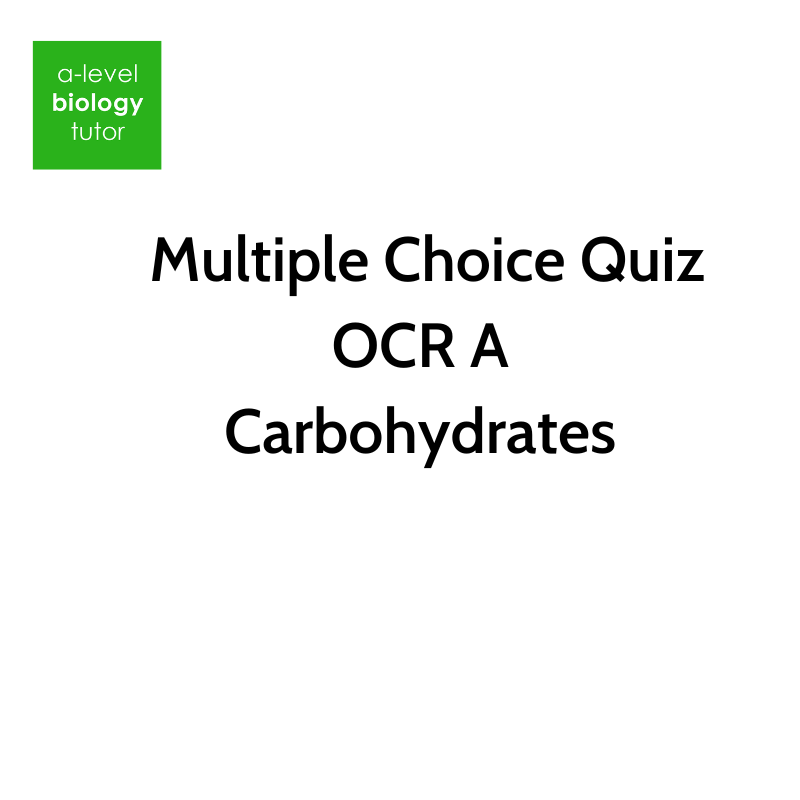Mastering AQA A Level Biology Section 3.4.3: Genetic Diversity via Mutation and Meiosis - Common Questions & Mark Scheme Insights
Prior Knowledge Essential for This Topic
Before tackling meiosis and genetic diversity questions, ensure you're confident with:
Read moreAfter analyzing past papers and mark schemes for AQA specification section 3.4.2 (DNA and Protein Synthesis), I've identified the question types that consistently challenge students. Understanding these patterns and the specific language that mark schemes reward is essential for maximizing your exam performance. Let me guide you through four of the most frequently tested question types with real AQA examples.
Read more I've noticed that certain types of questions in AQA specification section 3.4.1 (DNA, Genes and Chromosomes) consistently challenge students. Understanding these patterns and knowing how to approach them can significantly boost your exam performance. Let me walk you through four of the most commonly asked question types, using actual AQA examples, and show you exactly how to earn those crucial marks.
Read more3.1.5 - Nucleic Acids Structure and Replication
Can you
Draw the formation and hydrolysis of a phosphodiester bond
Name the parts of a nucleotide
Explain the similarities and differences between RNA and DNA
Explain why DNA is a good molecule for storing information ?
Can you describe semi-conservative replication ?
Read moreAs part of the fortnightly group tuition sessions running Mondays at 7.15pm for Alevel Biology - AQA and OCR A I am trying out these notes templates. Tonight we are covering Transpiration and the Light Dependent reactions
Read more10% of the marks in Biology papers are for calculations. Here are some good practise questions and a great advice document from OCR (applicable to all boards)
Read moreSome terrific guidance and definitions here - from AQA but applies to all exam boards
Read moreA great glossary of vocabulary that applies to Biology questions and answers.
Read morePowerpoints, videos and animations, a self marking quiz on lipids and carbohydrates.
Some tips
Number the carbons and understand when and how a 1,4 glycosidic bond forms.
Why it matters that you can form a 6,1 bond in order to branch a polysaccharide.
Why does it matter that polysaccharides are insoluble and mono and di-saccharides are soluble.
What is the consequence of Beta glucose forming cellulose
Which molecules have a 5 carbon sugar in mammals ?
Can you explain why fatty acids are non-polar and what is the consequence for the formation of cell membranes
Read moreResources for learning the immune system. Powerpoints, animations, videos, self marking test and some rare immune sytem questions.
Read moreMultiple choice questions on cell organelles, all past paper questions, a good way to assess your understanding
Read moreResources on viruses and prokaryotes
Read moreOxygen is the final electron acceptor. It oxidises the final carrier in the ETC on the inner mitochondrial membrane and is reduced to water.
Hydrogen ions flow from the inter membrane space into the matrix via ATP synthase, this electrochemical gradient phosphorylates ADP.
Hydrogen ions are pumped from the matrix into the inter membrane space, using the energy from the electrons flowing along the ETC. The electrons come from the oxidation of food, transferred by coenzymes NAD and FAD.
Glycolysis occurs in the cytoplasm. Link and Krebs in the matrix. Link and Krebs produce carbon dioxide by the removal of a carboxyl group.
Fermentation is just glycolysis with a different way of regenerating NAD (from NADH) by the reduction of pyruvate (or ethanal).
Substrate level phosphorylation is the direct addition of phosphate to ADP, occurs in glycolysis (4 ATP) and Krebs (once per turn), chemiosmosis is H ions flowing through ATP synthase.
Cristae give a larger surface area for oxidative phosphorylation
Read moreCell membranes, osmosis, diffusion , active transport, - lots of experimental and application questions
Read moreAQA released the June 2017 Biology papers - they are all available at
http://www.aqa.org.uk/subjects/science/as-and-a-level/biology-7401-7402/assessment-resources
I combined the 7402/01 paper with the markscheme to make it easier to follow and interpret. If you find it useful then please like and share.
Read moreAQA released the June 2017 Biology papers - they are all available at
http://www.aqa.org.uk/subjects/science/as-and-a-level/biology-7401-7402/assessment-resources
I combined the 7402/02 paper with the markscheme to make it easier to follow and interpret. If you find it useful then please like and share.
Read moreAQA released the June 2017 Biology papers
I combined the 7402/03 paper with the markscheme to make it easier to follow and interpret. If you find it useful then please like and share.
Read moreA few common mistakes with molecules and cells and membranes
Please like and share
Read more









